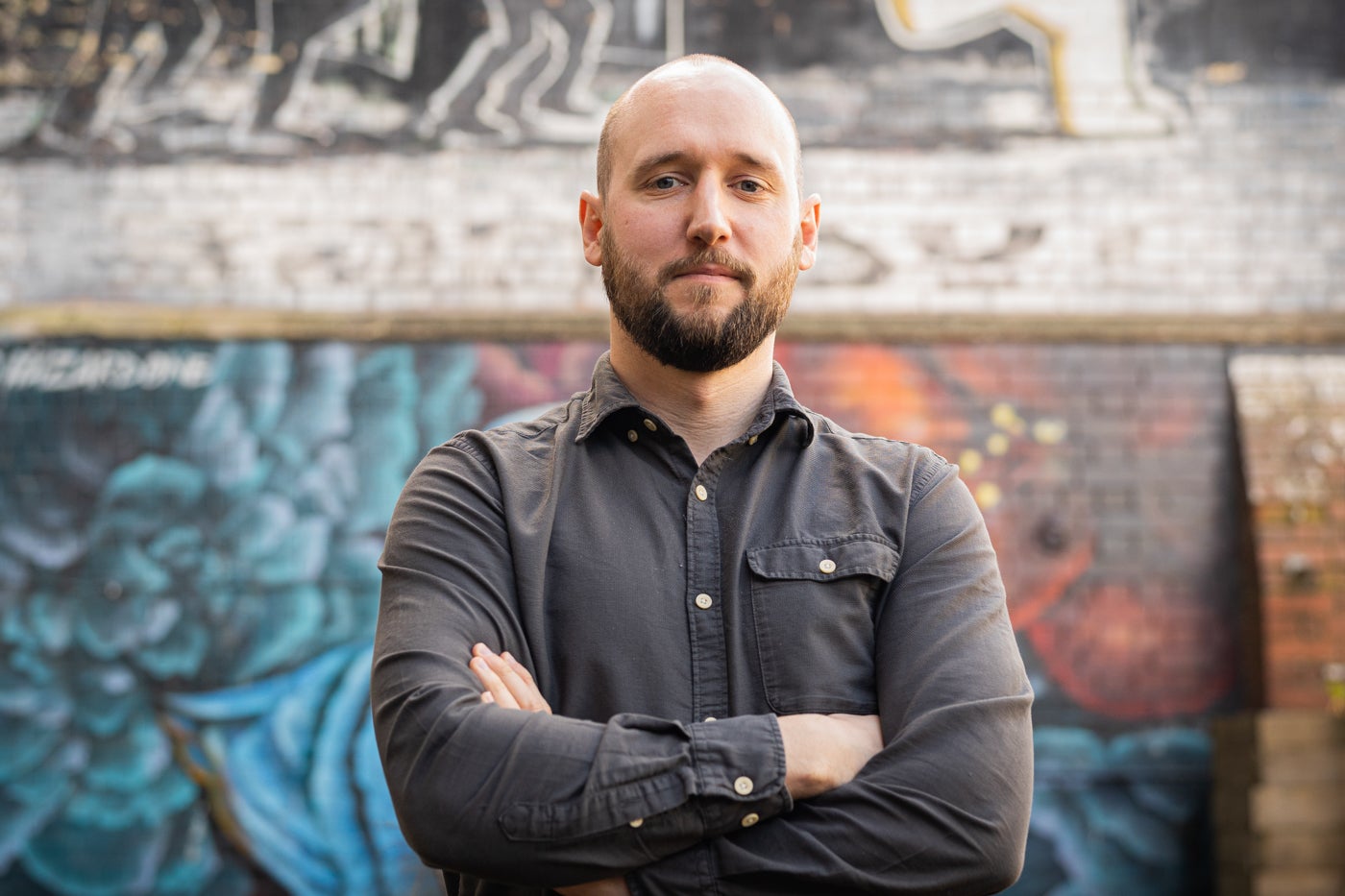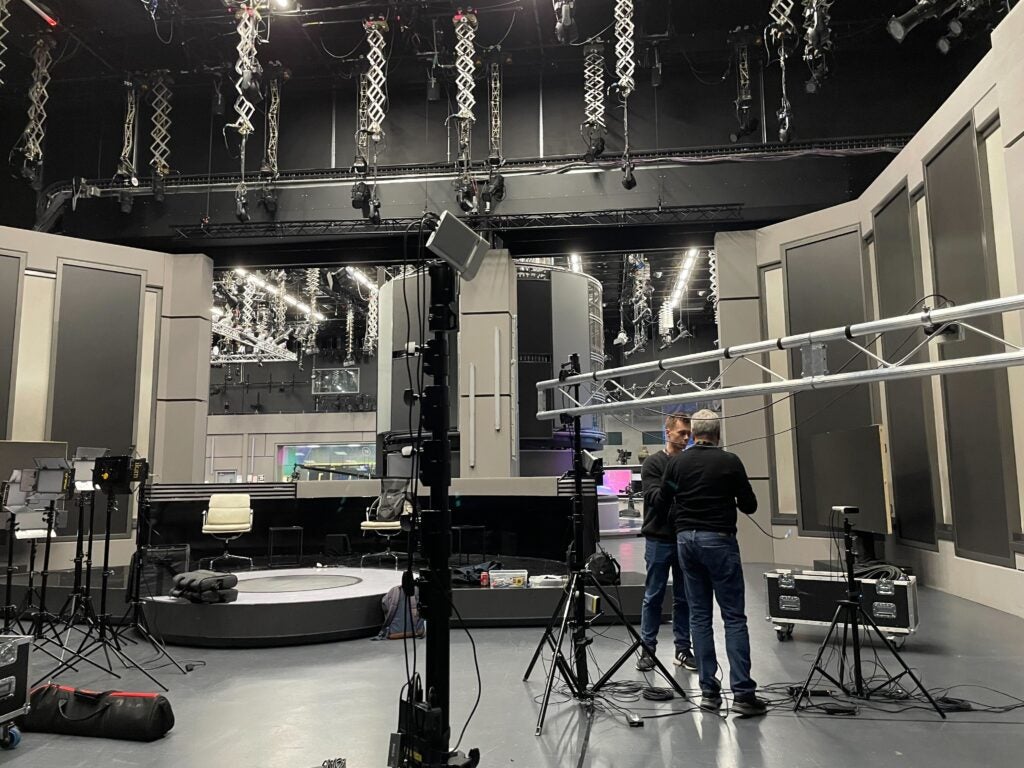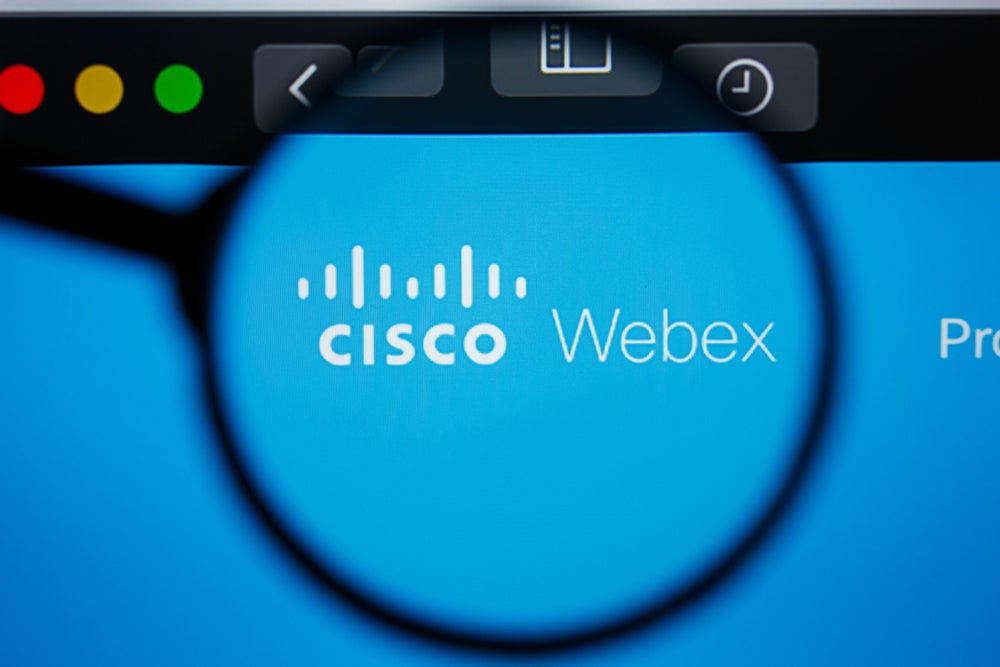
Live concerts are going to the metaverse. Fortnite hosted its first in-game concert with masked DJ Marshmello in 2019. Millions of gamers turned up to watch the 10-minute event. The artist’s star skyrocketed as a result: his Twitter following grew by 62,000 and his Instagram ballooned with 260,000 new followers. It was an unmitigated success.
The show proved the starting gun for a smattering of artists turning to the digital realm, hoping to tap into new audiences.
Over the past two years, artists like Travis Scott and Ariana Grande have performed on Fortnite. Similar concerts have been hosted on platforms like Roblox and Minecraft, and if you ask the music industry, this is just the beginning.
The performance also kick-started a rising tide of ventures aiming to provide the technology to make more of these events a reality.
Nick Fellingham, CEO and co-founder of Condense, is one of the people betting big on the future of live concerts in the metaverse. In addition, his startup has just improved its chances to become a leader in the industry by securing a $4.5m in a seed round.
LocalGlobe, 7percent Ventures and Deeptech Labs led the round. Angel investors like an unnamed “platinum-selling grime artist,” Monzo-founder turned startup backer Tom Blomfield, music manager Grace Ladojz and Ian Hogarth, co-founder of live music startup Songkick and investment platform Plural, also joined the round.
How well do you really know your competitors?
Access the most comprehensive Company Profiles on the market, powered by GlobalData. Save hours of research. Gain competitive edge.

Thank you!
Your download email will arrive shortly
Not ready to buy yet? Download a free sample
We are confident about the unique quality of our Company Profiles. However, we want you to make the most beneficial decision for your business, so we offer a free sample that you can download by submitting the below form
By GlobalData“And then, boom, they’re in a video game”
The Bristol-based startup uses end-to-end capture and streaming technology to live stream events onto any digital platform.
“What we do is, we take the feeds from multiple cameras and we to predict the surface of everything inside that volume that we’re capturing,” Fellingham tells Verdict.
No matter if it’s a rapper or a dog, the technology takes the captured film and creates a 3D model from it. That 3D version of the live concert can then be fed into basically any metaverse platform.
“And then, boom, they’re in a video game,” Fellingham says.
Gamers watching the show can get a 360-degree view of the concert, being able to walk around the artist performing.
“That really creates this feeling of presence, it creates this feeling of being there because that’s how our brains have evolved to consume content,” Fellingham says.
Fellingham founded Condense in 2019 to bring live concerts to the metaverse
After finishing his physics degree at Loughborough University in 2011, Fellingham cut his teeth in the tech industry as a software developer, teaching himself about machine learning.
“And along with that, I’ve always been interested in music – I’ve produced a little bit of music myself – and video games,” he says. “And the idea [for Condense] came to me while I was playing a game. People who play video games know that you often slip into this state where the room that surrounds you doesn’t exist.”
Fellingham likens the total immersion of “being in the zone” to how drivers can become so comfortable driving cars that they almost forget that they’re switching gears and turning wheels, instead feeling like they are simply moving in the world.
Then something occurred to him: what would happen if gamers who were in the zone could enjoy real-life concerts in those games? The thought was the start to the journey that would see him found Condense and and attempt to bring live concerts into the metaverse.
Digital show are nothing new
It should be noted that the idea of digital concerts is nothing new. Open-world platform Second Life featured a chaotic performance from Ben Folds in 2006, as reported by Rolling Stone. The pop band Gorillaz has also experimented with the concept for the better part of the past two decades.
Despite these initial excursions into the realm of digital concerts, live performances in virtual reality has up until recently remained virtually unheard of. But things have changed. Over the past few years, more and more people have opened their eyes to the possibilities.
Covid-19 accelerated this trend. Due to governments imposing social restrictions in their attempts to contain the contagion, people found themselves locked up at home and searching for ways to entertain themselves. In the end, that proved a huge boon for developers in this space.
“In the past two years, we saw many virtual concerts that have attracted millions of fans into metaverse,” Ed Bramwell, CEO of metaverse ad company Versadex, tells Verdict. “Metaverse concerts became more popular during the pandemic, when most people stayed at home and couldn’t travel to real-life concerts.”
While lockdown restrictions have eased across the planet, market watchers expect that this will not spell out the end for virtual shows.
“Hundreds of millions of people are hanging out in immersive 3D platforms like Roblox, Rec Room, Fortnite, Sandbox, Decentraland and VRChat; attending virtual events, socialising and being creative,” Ziv Reichert, partner at seed investor LocalGlobe, says. “At the same time, player demand for live entertainment inside these virtual worlds has never been greater.”
Not ending real-life live shows
Fellingham believes that live concerts in the metaverse, powered by technology like the one delivered by Condense, won’t replace in-person events. Instead, he wants to create an experience that is just as valuable, but in a different way.
“I was at Glastonbury watching artists just a couple of months back and the experience you get when you go there is unique,” he says. “We’re not trying to replace that. The way I look at it is that the internet is not going to go away [and] the online part of our lives is just as real as any other part of our lives.
Metaverse concerts provide artists with new revenue streams, separate from conventional live gigs. These gigs can also provide music labels with the opportunity to reach new demographics, both in terms of the gaming community as a whole and by having events where the artists aren’t touring.
“Virtual worlds have become the new outlet for people to hang-out in, socialise with friends and explore,” Emma Chiu, global director at creative agency Wunderman Thompson’s global futures and trend intelligence unit, tells Verdict. “The introduction of live concerts has been a huge game-changer for both the music industry and video games.”
For Nikita Sachdev, CEO and founder of VC fund and agency Luna, metaverse concerts is about enabling smaller artists to reach a global audience.
“We are living in a digital world,” she tells Verdict. “While live concerts taking place in the real world are likely to retain their popularity, the fact remains that only the biggest artists, represented by labels with the biggest budgets, can afford to put their artists on tours. However, the artist only gets a miniscule share of the revenue, as there are hundreds, sometimes thousands of employees, featuring artists, and label owners at play.
“In turn, live physical concerts only represent a miniscule fraction of the demographic that follows an artist. While Madison Square Garden and the O2 arena are both massive venues that hold a capacity of 20,000 each, the capacity of the metaverse concert could easily be a thousand times that. With lower ticket costs, and no physical restrictions, Drake could hold a concert with Justin Bieber and millions would be able to watch, rather than just tens of thousands.”
Will Condense only support live concert in the metaverse for established artists?
Metaverse concerts have so far only been available for established artists that can afford the technology. Condense wants to change that.
“So at the moment, you’ve got Travis Scott and Ariana Grande –superstars, basically, – those are the ones that get access to this technology,” Fellingham says. “And we think it’s much better to take an artist-led approach where we’re creating movements and bring in up and coming artists.”
To that end, Condense has launched a scholarship in Bristol for eight scholars at a creative music college.
“We’re going to be giving them and local Bristol artists free access to our studio, and we’ll be encouraging our partner studios to be doing the same,” Fellingham says.
That being said, the technology is not cheap. The hardware itself costs “about £30,000” and Condense charges a licence fee on top of that as well as a fee for every minute streamed to end users. So it is unlikely that we’ll see smaller artists buy the solution any time soon.
Covid-19 wasn’t great news for Condense at first
The coronavirus crisis may have accelerated the trend to push live concerts into the metaverse, but for Condense it initially proved to be a tough hurdle to overcome.
Fellingham and his two co-founders – CSO Ollie Feroze, and COO and founder of Twitter-acquired social TV startup SecondSync Andy Littledale – had begun to tinker with the concept before the company was incorporated in 2019.
At the beginning of 2020, they were gearing up raise their first funding round. Unfortunately, that was when the pandemic hit. As a result, investors became reluctant to back the budding Bristol business.
“We went out to investors in March 2020 and they said ‘there’s no way anyone’s going to give you the money right now, go away, carry on working.’ And so it was a bit of a wobble,” Fellingham says.
But the team kept working and in September 2020, the Condense successfully raised a pre-seed round that enabled it to grow the venture into a 20-staff strong startup.

Building a metaverse studio
Condense will use the cash injection from the new $4.5m seed round to keep developing its technology. In addition to the funding announcement, the company has also opened a metaverse studio “to give established artists and emerging talent access to the technology.” The studio can also accommodate a live audience
“There will be a select few people that can come and attend in real life, but the majority of people are viewing inside a virtual environment,” Fellingham says. “We’ve sort of flipped it on its head – whereas most event spaces are for the audience that’s there, we’re thinking about the audience that’s in a metaverse world. They’re our primary audience.”
The studio has been opened in a partnership with Watershed, a Bristol-based cultural cinema and creative technology venue. Condense will open a second London-based studio with another organisation soon. More studios are in the pipeline across the UK and internationally.
In the future, Condense also hopes to expand beyond the music scene and stream things like boxing events or even cooking shows into the metaverse.
For now, Condense will focus on showcasing its technology’s capabilities, showcasing what can be done at the company’s own metaverse property, which is set to be released at some point later in 2022. In the future, however, the CEO believes gigs will be streamed onto some of the bigger platforms in the world.
“We’ve got conversations going on with a number of the big platforms,” Fellingham says. “I can’t mention who but I expect that we will have integrations coming over the coming months.”
GlobalData is the parent company of Verdict and its sister publications.






